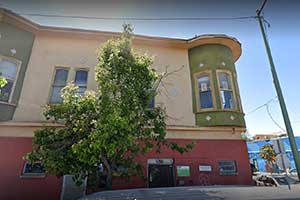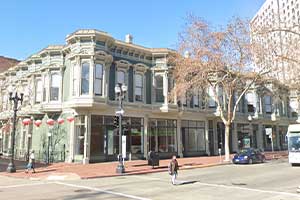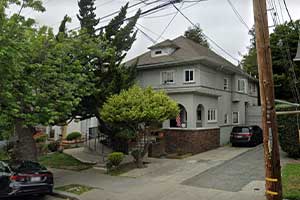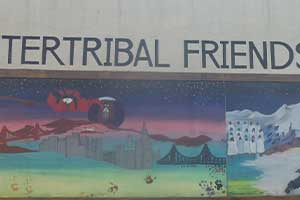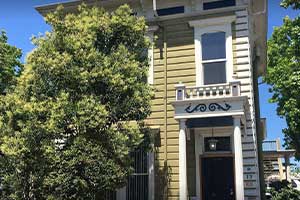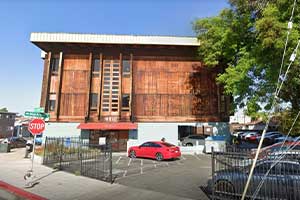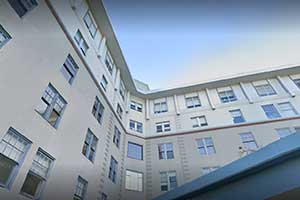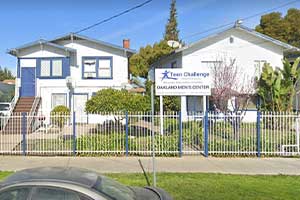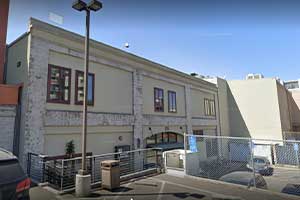Skip To Rehab Listing
That is the reason the Oakland area has 40 drug and alcohol rehab facilities accessible to local residents who struggle with drug and/or alcohol abuse. These centers aid the area's population of 390,827 no matter age or circumstances in order to make effective rehab available to anyone who needs it.
Drug and Alcohol Rehab Program Settings and Methods
Oakland area residents who face addiction problems can select from a range of treatment settings based upon factors such as their location and specialized needs.
Recovery settings can include the following: inpatient drug and alcohol rehabs, long term drug rehab centers, outpatient substance abuse counseling, short term treatment programs, inpatient detoxification centers.
Patients can also choose from several recovery approaches designed to offer effective support for their needs: activity therapy, dual diagnosis drug rehab, group therapy, 12-step facilitation approach, relapse prevention, couple/family therapy.
Special Programs for Addiction Treatment
Alcohol and drug addiction is not one-size-fits-all, so treatment must be individualized. That is why alcohol and drug rehab facilities in the Oakland area offer a number of specialized programs intended to provide a tailored approach to treatment for clients. These programs can include the following: substance abuse education, housing services, programs for the hearing impaired, persons with eating disorders, legal advocacy, child care for clients children.
Treatment Payment Options
Clients sometimes avoid treatment because of worries about money. However, drug and alcohol treatment programs make a range of payment alternatives available to patients in order to help with their financial considerations and increase opportunities for recovery. Some of these options are included here: cash or self-payment, private insurance, payment assistance, military insurance, state welfare or child and family services funds, access to recovery (atr) voucher.
Addiction recovery is accessible for Oakland, CA. residents through a great deal of different programs, approaches, and payment options that put sustained recovery within reach.
Commonly Asked Questions about Addiction and Treatment
In what ways do drug addiction change one's personality?
Drug addiction can significantly change an individual's personality in various ways. The changes are often a result of how the substance interacts with the brain and can affect one's behaviors, emotions, and interactions with others. Here are some common ways in which drug addiction may alter personality:
Increased Aggression or Irritability: Substances can affect the brain's balance of neurotransmitters, leading to changes in mood and behavior. This can result in increased aggression, irritability, or mood swings, which might not align with the person's typical personality traits.
Decreased Motivation: Many addictive substances can lead to a decreased interest or motivation in activities that were once enjoyed. This can result in a noticeable change in personality, as the person may appear apathetic or disinterested in life outside their substance use.
Increased Impulsivity and Risk-taking: Drug addiction often leads to increased impulsivity and risk-taking behaviors. This is due to changes in the brain's reward system and decision-making processes, leading individuals to take more risks to obtain the substance, often disregarding the potential consequences.
Paranoia and Anxiety: Some substances can induce feelings of paranoia or increase levels of anxiety. Individuals who were previously calm and trusting may become suspicious, anxious, or overly worried.
Depression: Many individuals struggling with substance use disorders also experience symptoms of depression. This can lead to a noticeable change in personality, including increased sadness, lethargy, and withdrawal from social activities.
Manipulative Behavior: In order to continue using and obtaining drugs, individuals may resort to manipulative behaviors, such as lying, stealing, or deceit. This can result in a significant change in personality, as individuals may prioritize their addiction over their relationships and personal values.
Social Isolation: As drug addiction progresses, individuals may isolate themselves from family and friends, either to hide their substance use or because their primary relationships are increasingly with others who are using drugs.
Neglect of Personal Care: Addiction can lead to neglect of personal care and hygiene, which may manifest in physical changes as well as shifts in personality traits related to self-discipline and self-respect.
What happens in an intervention for someone with an addiction to drugs?
An intervention for someone with a drug addiction is a structured and planned event designed to encourage the individual to acknowledge their addiction and seek professional help. The primary goal is to guide the person towards accepting treatment and taking the necessary steps towards recovery. Here is an outline of what typically happens during an intervention:
- Planning: Before the intervention, loved ones and concerned parties (such as family members and friends) gather to discuss the situation and develop a plan. They may enlist the help of a professional interventionist, who can provide guidance on the intervention process and help maintain focus on the desired outcome.
- Preparation: Participants gather information about the person's addiction, the impact it has had on their lives, and the available treatment options. They also prepare personal statements expressing their concern, love, and support, while addressing the negative consequences of the individual's drug use.
- Rehearsal: The group rehearses the intervention to ensure that everyone is prepared, confident, and aware of their roles. This step helps participants maintain a calm and non-confrontational tone during the actual intervention.
- The intervention meeting: The person with the addiction is invited to a pre-arranged location, often under the pretense of a different event. The group then confronts the individual with their prepared statements, detailing the impact of the addiction on their lives and urging the person to seek help.
- Presentation of treatment options: The group presents the person with a pre-selected treatment plan or multiple options, emphasizing the importance of immediate action. It's crucial to have arrangements in place, such as pre-admission to a treatment facility or an appointment with a counselor, to facilitate a smooth transition into treatment.
- Setting boundaries and consequences: During the intervention, participants establish clear boundaries and consequences if the person refuses to accept help. These consequences may include ceasing financial support, limiting contact, or other actions to protect themselves from the negative effects of the addiction.
- Support and encouragement: Throughout the intervention, participants express their love and support for the individual, emphasizing their belief in the person's ability to recover and rebuild their life.
- Post-intervention follow-up: If the person agrees to seek treatment, the group continues to provide support during their recovery process. If the person refuses help, the group must follow through with the established consequences to reinforce the seriousness of the situation.
What are triggers for a drug abuser?
"Triggers are specific events, emotions, situations, or people that can prompt someone with a history of substance abuse to feel a strong urge or craving to use drugs or alcohol again. These triggers can be external or internal, and they can vary greatly between individuals based on their unique experiences, environment, and psychological makeup. Recognizing and managing triggers is a critical part of the recovery process. Here are some common types of triggers:
Emotional Triggers: Strong emotions, both positive and negative, can act as triggers. Stress, anger, sadness, loneliness, anxiety, and even joy or excitement can prompt a desire to use substances as a way to cope or to enhance the emotional state.
Environmental Triggers: Certain locations, sounds, smells, or time of day associated with past substance use can elicit cravings. This could be places where the person used to use or buy drugs, people they used with, or even certain songs or smells linked to their past use.
Social Triggers: Social situations or specific individuals can serve as triggers, especially if they involve substance use or if the people involved were part of the person's drug-using past.
Physical Triggers: Physical discomfort, illness, or fatigue can potentially lead to cravings, as can the sight of drug paraphernalia or substances themselves.
Psychological Triggers: Thoughts or memories associated with drug use, low self-esteem, boredom, or mental health conditions such as depression or anxiety can also act as triggers.
Celebrations or Special Occasions: Birthdays, holidays, anniversaries, or other celebrations can be triggers, particularly if substance use was a past part of those events.






